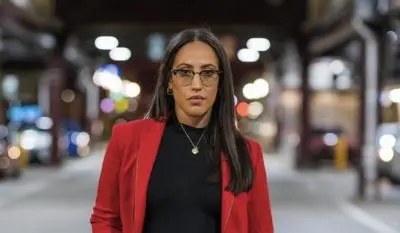Glenda Glover is optimistic about the future of Tennessee State University, despite being robbed of billions of dollars.
Recently, the TSU president spoke to rolling out about the state owing the HBCU $2.1 billion, and what is in the works to fix the issue.
What is going on at TSU in regard to its relationship with the state?
We found out recently, a couple of weeks ago, that a study had concluded that HBCUs were owed over $13 billion. The land grant HBCUs. TSU was in the number of 16 universities in 16 states [who were owed money]. Our share of underfunding, according to their report, was $2.1 billion. So immediately, we started making contact with representatives and the governor’s office, and we are in continuing dialogue with the governor’s offices and with members of the Tennessee legislature.
What was your first reaction when you learned about this?
I was with others when we learned about it. Talking to other college presidents, there were several emotions, from anger to curiosity as to why this happened and how this happened, who let it happen? How do you stop it from happening in the future? Why are just HBCUs underfunded? It’s the same old cycle again. So there are so many different emotions from so many of the presidents who have been having conversations with individuals in Washington for years about the underfunding. That’s where we are with it.
Do you know if any notable alumni, more specifically Oprah Winfrey, have spoken out about this?
A lot of alumni have been talking about it. We are working on a project with Oprah, but she and I have not communicated regarding this $2.1 billion. Alums, I have to use the right word, they’re just furious that this has happened. And they’re glad this has come to light because it’s no secret that TSU is underfunded.
In fact, the governor came forward and made a $250 million investment in TSU. That’s a demonstration of his commitment to trying to make things right. So we believe that we’re on the right track with the continued negotiations with the legislature and the governor’s office.
What can some of those funds go to?
Well, let’s look backward. Had we had funding, all the issues that we had been presented in the last two, three or four years would not be issues. The housing challenge that we had, the challenge is that we had so many freshmen who wanted to come to TSU, which is a great thing, but they were able to minimize it. “They” meaning certain people in the legislature, were able to minimize that tremendous feat by saying, “You don’t have housing for them.” We don’t have housing because you did not give the funds to us, the victim, and now you blame the victim.
How do you remain professional in a frustrating situation like this?
You continue to negotiate. You continue to hold conversations with the right ones who can help make decisions. Those are the ones you talk to. The ones who would never come around, are not the ones you engage in serious conversation with.

















